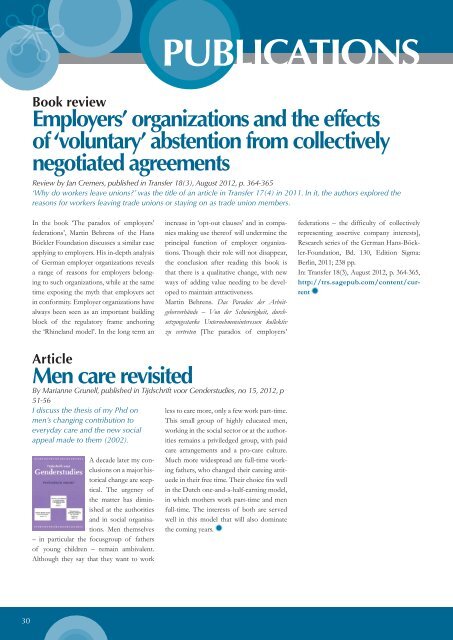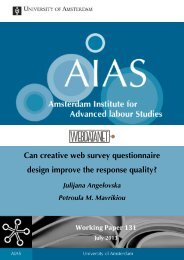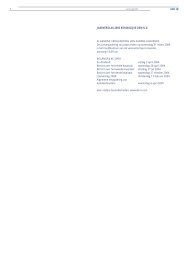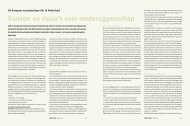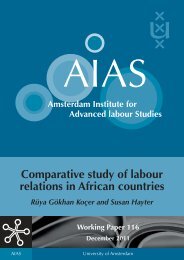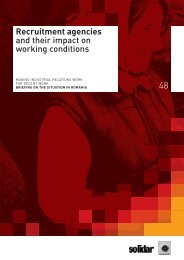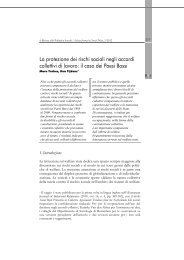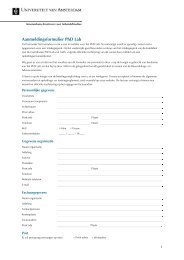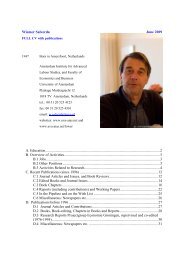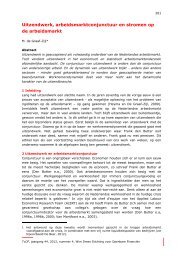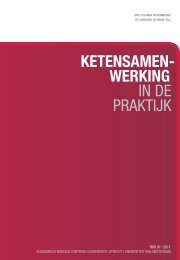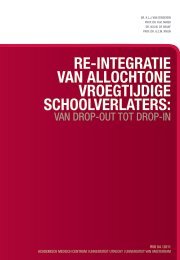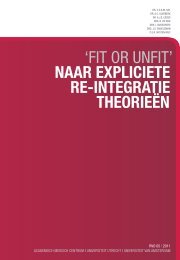AIAS newsletter Autumn 2012 TW.indd
AIAS newsletter Autumn 2012 TW.indd
AIAS newsletter Autumn 2012 TW.indd
Create successful ePaper yourself
Turn your PDF publications into a flip-book with our unique Google optimized e-Paper software.
30<br />
PUBLICATIONS<br />
Book review<br />
Employers’ organizations and the effects<br />
of ‘voluntary’ abstention from collectively<br />
negotiated agreements<br />
Review by Jan Cremers, published in Transfer 18(3), August <strong>2012</strong>, p. 364-365<br />
‘Why do workers leave unions?’ was the title of an article in Transfer 17(4) in 2011. In it, the authors explored the<br />
reasons for workers leaving trade unions or staying on as trade union members.<br />
In the book ‘The paradox of employers’<br />
federations’, Martin Behrens of the Hans<br />
Böckler Foundation discusses a similar case<br />
applying to employers. His in-depth analysis<br />
of German employer organizations reveals<br />
a range of reasons for employers belonging<br />
to such organizations, while at the same<br />
time exposing the myth that employers act<br />
in conformity. Employer organizations have<br />
always been seen as an important building<br />
block of the regulatory frame anchoring<br />
the ‘Rhineland model’. In the long term an<br />
increase in ‘opt-out clauses’ and in companies<br />
making use thereof will undermine the<br />
principal function of employer organizations.<br />
Though their role will not disappear,<br />
the conclusion after reading this book is<br />
that there is a qualitative change, with new<br />
ways of adding value needing to be developed<br />
to maintain attractiveness.<br />
Martin Behrens. Das Paradox der Arbeitgeberverbände<br />
– Von der Schwierigkeit, durchsetzungsstarke<br />
Unternehmensinteressen kollektiv<br />
zu vertreten [The paradox of employers’<br />
Article<br />
Men care revisited<br />
By Marianne Grunell, published in Tijdschrift voor Genderstudies, no 15, <strong>2012</strong>, p<br />
51-56<br />
I discuss the thesis of my Phd on<br />
men’s changing contribution to<br />
everyday care and the new social<br />
appeal made to them (2002).<br />
A decade later my conclusions<br />
on a major historical<br />
change are sceptical.<br />
The urgency of<br />
the matter has diminished<br />
at the authorities<br />
and in social organisations.<br />
Men themselves<br />
– in particular the focusgroup of fathers<br />
of young children – remain ambivalent.<br />
Although they say that they want to work<br />
less to care more, only a few work part-time.<br />
This small group of highly educated men,<br />
working in the social sector or at the authorities<br />
remains a priviledged group, with paid<br />
care arrangements and a pro-care culture.<br />
Much more widespread are full-time working<br />
fathers, who changed their careing attituede<br />
in their free time. Their choice fi ts well<br />
in the Dutch one-and-a-half-earning model,<br />
in which mothers work part-time and men<br />
full-time. The interests of both are served<br />
well in this model that will also dominate<br />
the coming years.<br />
federations – the diffi culty of collectively<br />
representing assertive company interests],<br />
Research series of the German Hans-Böckler-Foundation,<br />
Bd. 130, Edition Sigma:<br />
Berlin, 2011; 238 pp.<br />
In: Transfer 18(3), August <strong>2012</strong>, p. 364-365,<br />
http://trs.sagepub.com/content/current


